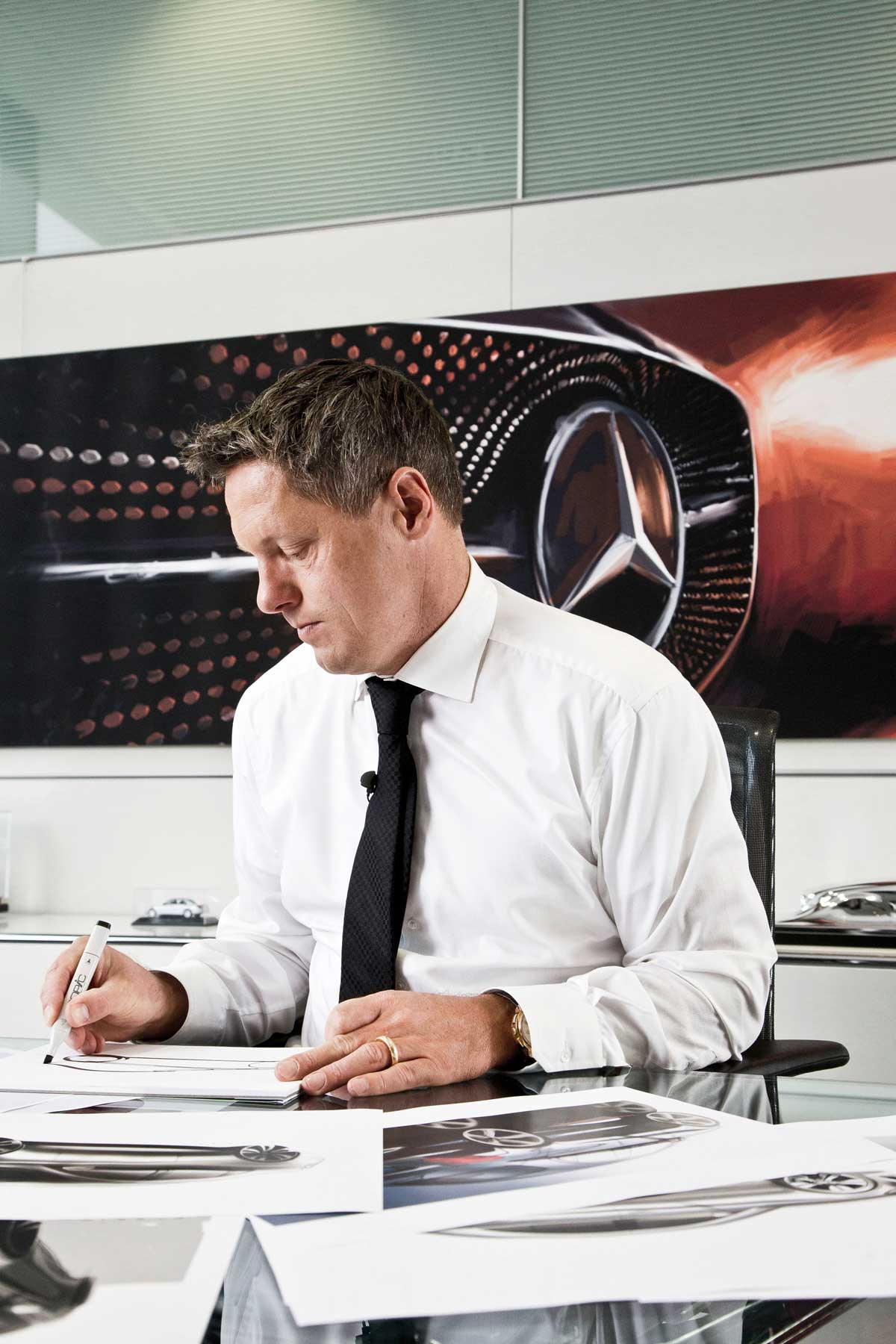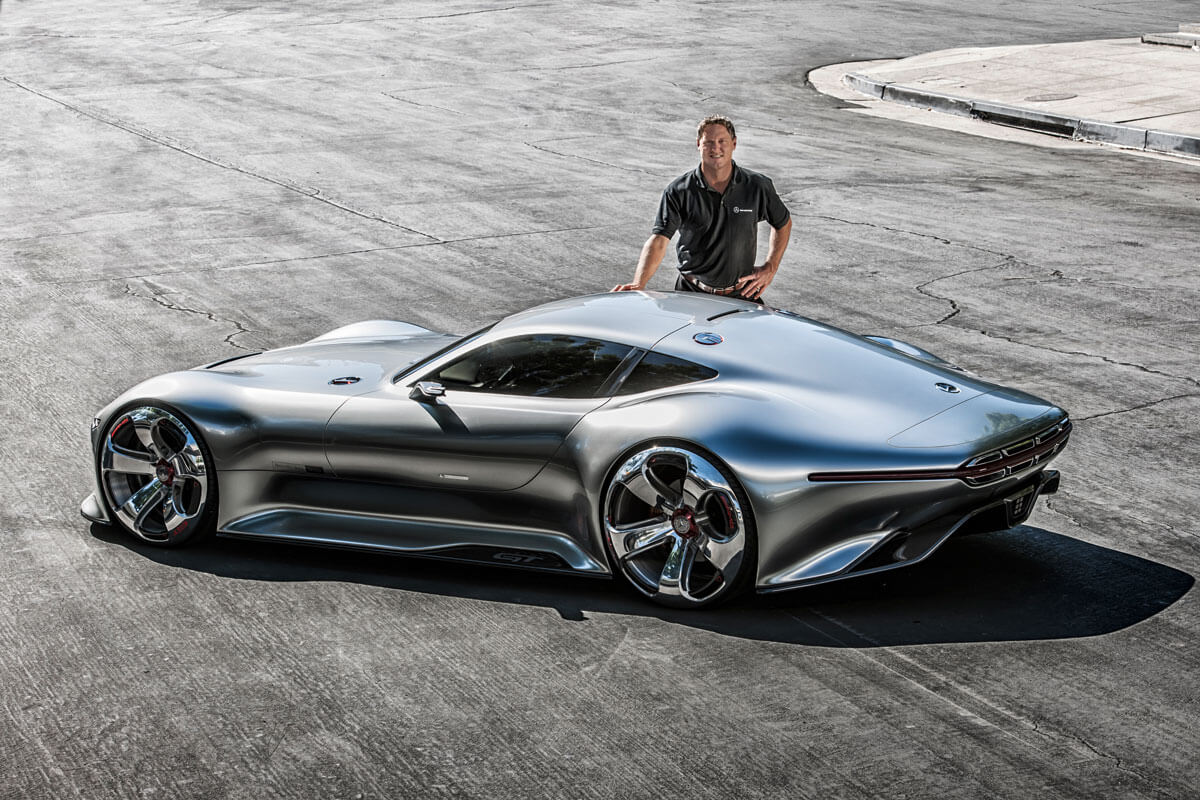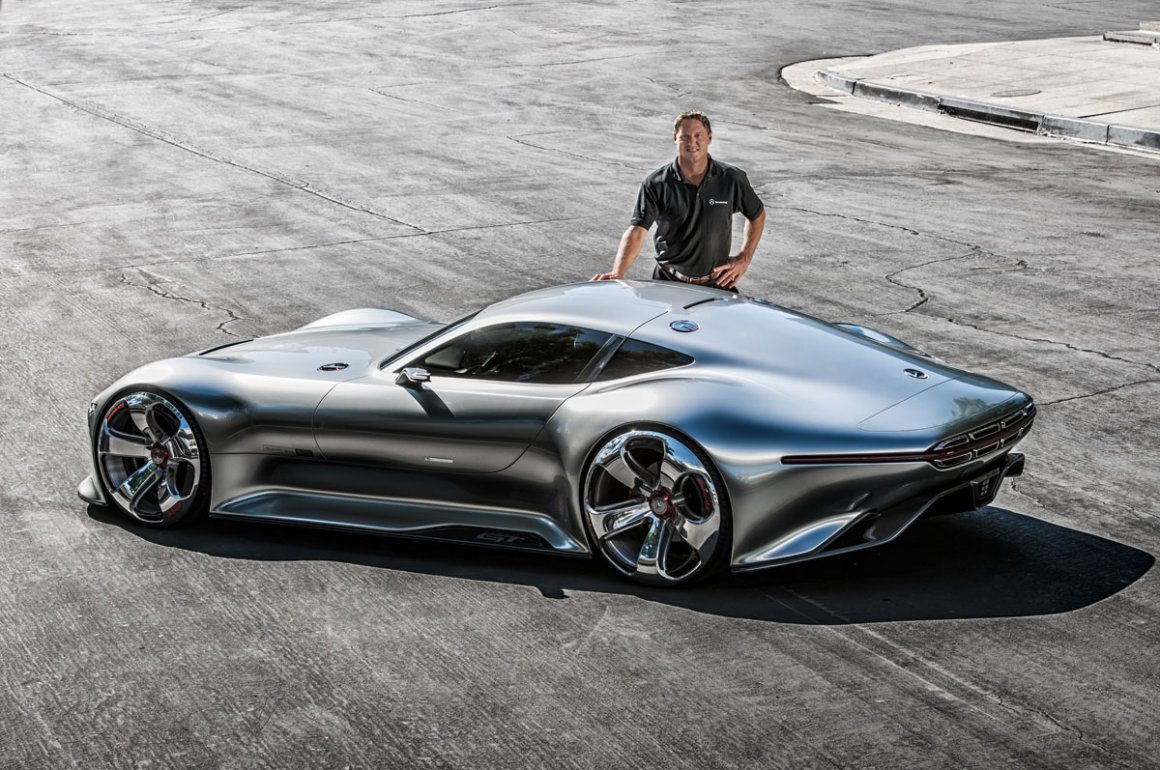Due to the technological revolution, design is more integral to our daily lives than it ever has been; but creativity will always be a fundamentally human trait, says our columnist, Gorden Wagener.

Gorden Wagener, Chief Design Officer at Daimler
The world is changing rapidly and the pace of change keeps accelerating. Because of that, there is a growing awareness about the details of every aspect of your life. The fact that our knowledge is shared globally, instantly, has created a greater awareness of design and the things that surround us. What everybody is aiming for is to create their own perfect world, and design is a key part of achieving that.
You can see this happening in the design of cars. Just 15 years ago, you would have a car, add some instruments and surface details and that was it – there was no design at all. Now, the complexity of this process has increased by a factor of about 100. We design each and every little detail. The seats and their surfaces are very design-driven, and so is all the digital stuff. The satellite navigation screens have become such a big topic. Previously, the headlamps were just there to illuminate and it didn’t matter how they looked; now each one of them is a super-complex little piece of art and technology. And, of course, good technology always has to work hand-in-hand with good design – think of your smartphone.
Read next: Luxury tourism returns to Zimbabwe

Gorden Wagener in the studio
All of this has made the world change utterly, and it’s cool to be part of that movement. When I studied design, it was very much a niche. But now you see how powerful it is to the point where it’s actually transforming the world and it is reshaping multibillion-dollar industries like ours in a dramatic way. It also means there are other areas where designers can focus.
Mercedes-Benz is not just a car company but an international luxury designer label. It’s important to create a holistic brand experience that extends from the product to the retail stores (which we design) and to selected luxury goods – to create an entire world, in fact. On the one hand, that positions us well as a luxury company, and on the other, it gives us feedback from other creative design disciplines, which in turn influences our own work and opens new doors to let us create things differently.

Gorden Wagener with a Mercedes-Benz concept design
In the past three years we have moved from being a traditional luxury company to being a modern luxury company – from the parents’ generation to the next generation, and it seems to have happened in an instant. Our aim is to attract our consumers into a total world so that they never leave Mercedes. We design their apartments, their homes, their cars, their commercial airplane, their boat and private jet, the Mercedes Me Store where they can go for dinner, and so on. It’s about creating a world that completely surrounds you.
Read next: London’s hottest property development
Our philosophy of Sensual Purity is a new movement; no-one has combined emotion and intelligence, the two basic tenets of humanity, within a single design movement before. Our designs are becoming more simplistic while keeping their sex appeal, which is again a natural thing. In the end, simplicity is always longer lasting than drama.
Emotional intelligence is deeply enmeshed in modern luxury and it is something a computer cannot have. A computer may have more intelligence than a human one day, but emotional intelligence is different. And to this day, we still make our key sketches on a piece of paper and only then do we digitize them and render them into 3D. Humans still lead design, despite the technological revolution.
Gorden Wagener is Chief Design Officer at Daimler, parent company of Mercedes-Benz. ‘Sensual Purity: Gorden Wagener on Design’, published by Condé Nast, is available at good bookstores worldwide.












Recent Comments